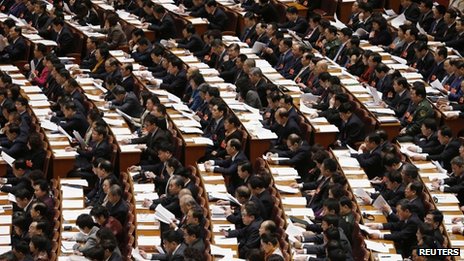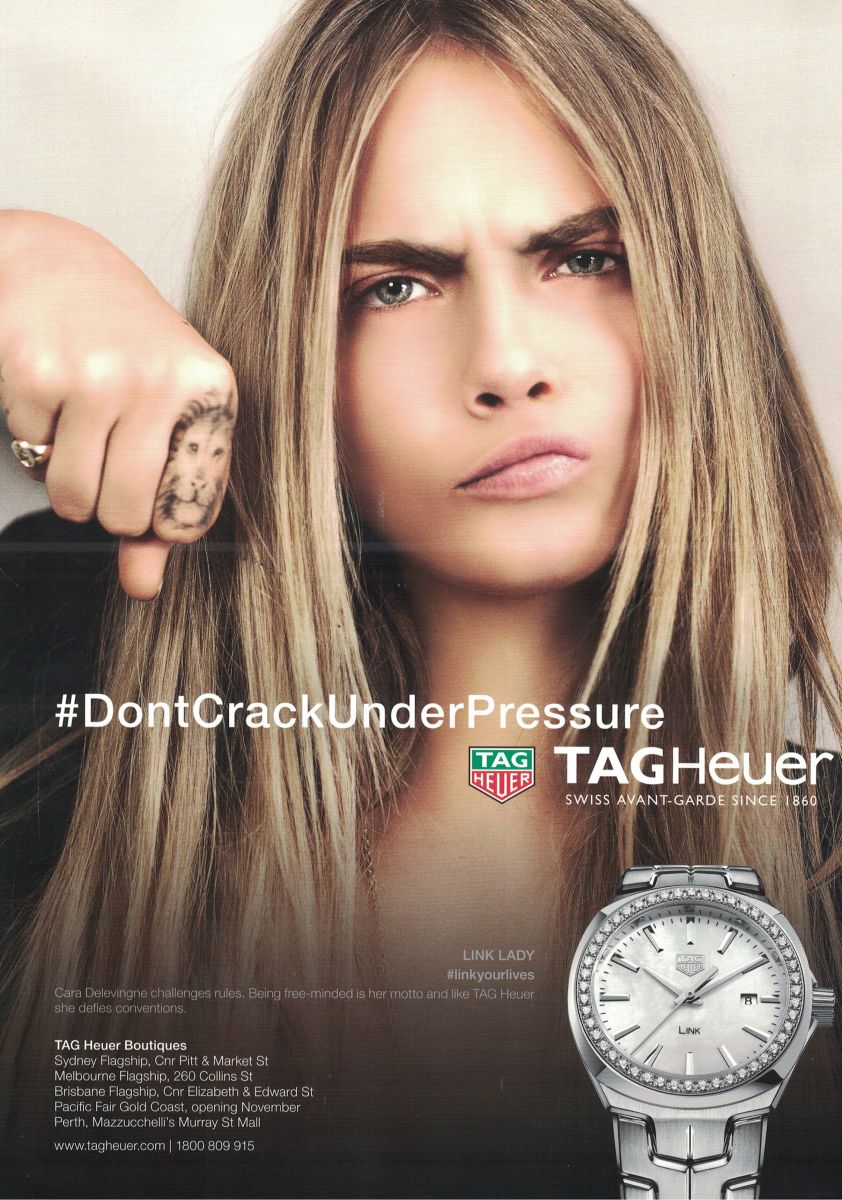THINKING ALOUD (Business&Law) BUSINESS CONTRACT: Don't Mean What You Say!
I mean normally you have your agent call the other agent and all the agents talk and then finally you get a phone call and you hear some misrepresentation of what someone else had to say.
— Radha Mitchell, Actress & Producer
DON’T MEAN WHAT YOU SAID" may infringe other laws
WRITER: Chén Róng
Misrepresentation of fact may run afoul of regulatory rules, putting aside contractual laws for the moment. To start the discussion, we will first talk a little about hair dyes.
Hair turning grey is common place among men and women when they reach forty years of age. At times even younger people are experiencing this gradual but irreversible process of aging. The only treatment being hair dyes that have to be used regularly as the hair grows. This cosmetic process produces a positive psychological effect on confidence in people at social settings and at workplaces. In China, officials at a certain rank all have standardized black hair to keep up with appearances -- it is part of the political protocol. For the rest of China, most Chinese men are more concerned with getting bald and less with maintaining a full head of black hair.
Hair dyes are products bought off the shelves of departmental stores as no doctors prescriptions are needed, although they contained two chemicals - hydrogen peroxide and ammonia in various concentrations.
Some hair dyes are temporary -- meaning it does not last. Others are labelled semi-permanent and permanent hair dyes. But are the permanent hair dyes really permanent? Or are the vendors misrepresenting the fact? ‘Permanent’ carries the dictionary meaning of ‘lasting or intended to last or remain unchanged indefinitely. It is true that both hydrogen peroxide and ammonia completely penetrate the hair shaft with long lasting effect, but the colour can be washed off after a few weeks of daily shampooing, depending on their chemical makeup. Hence, it is accepted in the marketplace that the term ‘permanent’ is to distinguish the product from temporary and semi-permanent hair dyes that produce less lasting effects.
Are hair dyes regulated? Misleading advertisements may violate pharmaceutical laws of certain countries, so vendors have to do due diligence work before advertising their products for sale. Hair dyes come within pharmaceutical-affair regulations because their ingredients are considered cancer risks.
We will now move on to a recent pharmaceutical case involving one of the world's largest drug giants. Its patent of a blood pressure medicine, expired in Europe and USA and sales plummeted as a result. But the drug giant's recent ads said that recent clinical tests in more than two dozen countries have shown that the medicine was also effective in preventing strokes and other heart conditions. One important legal point which the drug company seemed to have missed - pharmaceutical laws in Japan do not recognise foreign clinical data. There was also this allegation that its employees had been involved in carrying out these clinical studies, and that the data they yielded was suspect for inaccuracy.
An important lesson for vendors of pharmaceuticals - used for personal health or cosmetic reasons -- is that any misleading advertisement may fall foul of a country's pharmaceutical laws. And it may come long before consumers or Consumers ‘Associations wake up to take notice that vendors do not mean what they say -- misrepresentations in their advertising campaigns.
READ OTHER STORIES AT:
http://chenrong.hubpages.com/hub/THINKING-ALOUD
Complaint of misleading advertisement
WRITER: Chén Róng
Aircraft maker Airbus recently lodged a complaint with regulators asking them to investigate an alleged misleading and denigrating advertisement placed in a flight magazine by Boeing, the US plane manufacturer. The complaint is a part of an on-going trade war between the aviation giants.
Boeing claimed that its latest version of the 747 has cost advantage in terms of fuel consumption per trip over a comparable Airbus plane.
Britain's Advertising Standards Agency (ASA), the UK watchdog, ruled that the advertisement did not mislead readers of the trade magazine in question when touting the advantages of its jumbo jet. The Agency came to the decision that readers of the specialized publication were experts already familiar with this type of comparative advertisement; even if it might have been imperfectly written. ASA considered that the intended audience of the advertisement -- people in the decision-making process to purchase large air-crafts -- are familiar and high level of understanding of the methods used for comparison. They are unlikely to make a purchase without first going through an elaborate fact-finding process, based on their own specific requirements. The readers were therefore not likely to be deceived. The complaint was accordingly rejected.
Writer's personal opinion: Few advertisements are so narrowly targeted at a well-heeled audience where comparative advertising can be a useful tool. Businesses should be circumspect with how they wrote their advertisements, although it may be accepted that advertisers at times exaggerate a little when putting some spins on their marketing tools. Henceforth, when Johnson's advertised its baby products as the world's favourite and best-loved, the company had no complaints from its competitors. However, had the company make claims that its products were the 'world's best’ as compared to other known brands, the outcome could be different as mothers cannot be considered ‘experts’ Any comparative advertisement may be regarded as misleading and denigrating.
READ OTHER STORIES AT:
http://chenrong.hubpages.com/hub/THINKING-ALOUD


Chén Róng’s
Little English-Chinese Dictionary
-
at wits’ end = shù shǒu wú cè
-
business faux pas = shāng wù wù chuán
-
Lazy-bones = hào yì wù láo zhě
-
turn a blind eye = shì ruò wú dǔ
-
wearning ourselves off = jiǎn shǎo yī lài
CASE STUDY: Don’t mean what you say
Writer: Chén Róng
A homeowner signed a contract with a home renovation contractor to renovate his kitchen. A few days before the scheduled start of work, the contractor reneged on the contract so he may take on another more profitable project. Does it happen in every case?
In small Asian city-states like Singapore, small businesses depend a lot on word of mouth than advertisements for simple buyer/seller transactions and, in the present case study, home renovation contracts using binding and non-binding contracts.
The contractor will generally keep to what he has agreed upon. In a close-knitted society, ‘moral glue’ seems to bind the contractor to his promise; and that ‘His word is his Bond’ is important to his work. Therefore, even if a contract may be non-binding and it carries no penalty for breach, the contractor is sensitive to the moral implications of breaching the contract.
There is no empirical support for this argument. Rather it is the writer’s personal observation that in a close-knitted society, using a service provider based on personal recommendation seems more reliable than sourcing for one via advertisements in the daily newspapers. A signed contract may provide you with legal recourse in case of default but whether the contractor can keep to his promises is something else. He comes in with no references other than what he says he can do and will do.
In other big cities, things may be different because of differences in geography and culture.
In United States of America ,where the law typically does not recognise rights beyond monetary damages for amounts expected to be gained had both parties carry out their contract, chances are, a contractor may not hesitate on breaching his contract. Uncle Sam, (initials U.S.), insofar as the sale of goods and services are concerned, the general public largely depend on advertisements and less on word of mouth.
In the case of countries in Europe, the law tends to force the breaching party to perform its contractual obligation; a home renovation contractor may have to think twice before walking out of an agreement because of such legal norms.
Aside from specific-norms and culture, if the renovation contractor is a big establishment, goodwill is of paramount business importance. Goodwill is equivalent to cash as customers will return if the business provides good customer service and has established a good relationship with them. So, even if an offer is non-binding unless made in the form of written order confirmation, the contractor is more than likely to affirm a verbal offer made for the sake of business goodwill.
READ OTHER STORIES AT:
http://chenrong.hubpages.com/hub/THINKING-ALOUD
BUSINESS CONTRACT:
Don’t Mean What You Say!
WRITER: Chén Róng
Don’t mean what you say?
In a legal context, the listener has an actionable intentional misrepresentation claim that may lead to you, the speaker, having to pay for damages.
The marketplace may be highly competitive; some small businesses in their misguided enthusiasm to attract new customers may tend to oversell their products or services. Marketing brochures should be designed for specific purposes in mind and carefully proofread before presenting to customers/clients for their information. Such brochures should be presented at the start of business negotiations, not when the agreement is about to be signed or when performance of any work has begun.
Sometimes, marketing documents overstate a business’s capabilities when written in sweeping generalities about how the business is an expert in a certain field, and why engaging its services will make the customer’s project a sure-win venture. Consider this scenario: a music school marketing grand pianos under its agency with an amazingly overblown ad campaign. An advertisement produced by the school has this unsubstantiated claim: “we are able to create a child prodigy out of every child even if he/she may only be endowed with ordinary talents”. As testimony of sound product quality, the school also named a number of great musicians who owned or have owned pianos of different makes, including pianos marketed by the school. Or a hairstylist claiming a certain actress is one of his regulars, when the actress rarely visits the country where his one and only salon has a place of business.
As a general rule of thumb, the contents of marketing literature may include:
I. Information on what the business can do,
II. Information on what the business has specifically done for other customers and,
III. Information stating glowingly of the business without making specific and legally actionable representations
General statements on personal abilities and past performances on advertisements usually draw no challenges. You may say that in the past years, your business has tackled the toughest of jobs and met all schedules in good time. However, statements overly broad on claims of your capabilities can have serious repercussions; statements such as: ‘we have a solid employee base; all employees have experiences that are good enough to meet any technical challenge you may give us. We can also assure you of our efficiency in controlling costs and schedule and the probability of over-run is zero. Such a statement constitutes specific representation about future performance capabilities, and the business invariably opens itself to lawsuits the moment delivery dates are not met regardless of whom may be at fault.
In the 1980s and 1990s, Singapore have had its fair share of consumers complaint - businesses reneging on contracts; manufacturers making defective products and workmen providing shoddy services, especially small one-man outfits for plumbing and electric works. All these shortcomings left dissatisfied consumers at their wits’end. The Consumers Association of Singapore (CASE) spoke out on such errant businesses; CASE went on to help in the setting up of accreditation schemes managed by government agencies. These organisations did much to protect interests of consumers and workmen became a little more professional in their marketing approach.
All seemed dandy for a while until new problems popped out with the use of e-mail as the negotiation medium and it soon became indispensable for quick and efficient communication with customers. People tend to exercise less care when writing e-mails as against preparing formal work quotations. What most of them did not realize was that correspondence sent via e-mail is legally binding. After all, e-mails were not physically signed whereas signatures on work quotations were mandatory. For the benefit of those who are not aware of the matter: e-mail communication requiring no signatures is legally binding. It forms part of the contract documentation.
What is the legal position on promises made orally? It is common for workmen to undertake simple repairs and equipment installation works based on oral agreements. The legal position seems to be: Any pre-contractual statement may form part of the agreement and aggrieved party may have legal recourse for breach of contract and misrepresentation, if any. The contract value is small and not worthy of legal action and yet the matter remains troubling if not settled. It is not a pleasant position for both parties, so they should be more circumspect on discussing work requirements to avoid misunderstanding.
Misleading marketing information does not confine only to the smallish businesses. A housing developer owning swamp land advertised it as valuable commercially zoned land is misrepresentation of fact. A buyer who incurred losses because he relied on the seller's statement may take legal action against the misrepresentation. With the current Asian property market red-hot on an ascending trend, commonly found are picturesque newspaper advertisements of new residential developments. These are placed next to not-drawn-to-scale maps; visual representations of the property sites that included all the premiere shopping malls and nearest of mass transit railway (MTR). In case readers of the advert do not see those massaged contents, the advertiser had it spelled out that the nearest MTR station was stated as just five minutes away. An unqualified statement is misleading. A check with an online map will show the distance as 5-minute drive when road conditions are fine. It is difficult to completely find fault with those advertisements because there are truths in what they say, although these are just half-truths. The general understanding of a convenient housing development in relation to transport is usually a presumed ‘within walking distance’ to the nearest mode of public transport for non-urban locations.
You are about to buy a new family car? The financing environment is highly favourable; finance companies are advertising low interest rate of below 2 per cent for high level of financing up to 90 per cent, and a long term tenure of 10 years. Tread warily. At first glance, the deal looks attractive, but the actual interest rates are actually much higher. A year or so later, if you intent on selling your vehicle and repay outstanding car loan prematurely, you may actually get caught in a negative asset value situation.
Probably nobody cares about taking these errant companies to court for their business etiquette faux pas; and it is also difficult to stick a misrepresentation label on each of them. Nonetheless, these advertisements contain misleading representations and people keen on buying cars should remain vigilant.
To be fair, the people in top management may not really know of these minor missteps of their overzealous marketing staff hoping to get more potential buyers to their showrooms. Government agencies cannot possibly stay vigilant to regulate with intent to cover every possible legal loophole. Over regulation of any industry is bad. Self-regulation may be the better option. I always believe that business, an extension of social life, does not need to have an invisible discipline leash over its appearance as it would over discipline of its staff. People do have clear memories of inexcusable missteps. Bosses may forgive but not forget the missteps of their employees; lazy-bones who feigned sickness but had their inexcusable absence discovered for having spent an entire day partying at Palawan (Sentosa) Beach and for other faults. Nevertheless, employers cannot help thinking twice the next time round if there is the faintest sign of another act of infidelity.
If you do not wish to be mistaken for a duck, do not walk and quake like one. It is advisable to periodically review all business claims and representations. We should never turn a blind eye to them. The ‘Art of the Deal’, as billionaire Donald Trump advocates in his book, lies with weaning ourselves off sales gimmickry; trickery we thought could win us more customers. Such controversial representations should be avoided. Make no mistake, business etiquette is as important in commerce as it is in everyday life. Knowing how we should present ourselves with a positive professional image will give us the ability to set ourselves differently from our peers. In years passed, I have seen how sub-urban shops have successfully grown their businesses. They succeeded not because of their good locations; not because of glossy advertisements, but through word of mouth that they always mean what they say: An immaculate service, always!
READ OTHER STORIES AT:
http://chenrong.hubpages.com/hub/THINKING-ALOUD
Closed-end companies or fund arrangements
Writer: Chén Róng
With an involving regulatory regime, legal meanings of a term such as 'closed-end' fund do not necessarily mean what they say or generally understood to mean in particular context.
Generally speaking, closed-end funds (sometimes called closed-end companies such as investment trusts) come in many varieties, each structured with different investment objectives, strategies and portfolios. Owing to their diversity, each fund or company has dissimilar risks; rate of volatility; and, not least, fees payable and expenses incurred. It is the opposite of an open-end fund, also known as unit trusts in some countries.
Depending on the country concerned, a closed-end fund arrangement may not be subject of a regulatory framework for collective investment schemes. Whether a fund arrangement comes within specific regulatory controls depend on the characteristics of the fund concerned. It does not matter if statutory provisions provide for regulatory exemptions of closed-end funds or companies, as an investor, I will choose to stay vigilant. A regulatory authority may have power to issue notification and deem certain arrangements not to be closed-end funds and, hence, subject to specific regulations of the country.
Thinking-aloud, My opinion is: A complex regulatory framework is confusing to a lay-person, never mind if he is a sophisticated high-net worth individual. He may be wrong about a fund arrangement as being closed-end and unregulated because it is said to be a closed-end company or fund. It is always a good practice to check it out with the fund manager concerned at its inception.
READ OTHER STORIES AT:
http://chenrong.hubpages.com
Disclaimer
The writer makes no warranty of any kind with respect to the subject matter included herein or the completeness or accuracy of this article which is merely an expression of his own opinion. The writer is not responsible for any actions (or lack thereof) taken as a result of relying on or in any way using information contained in this article and in no event shall be liable for any damages resulting from reliance on or use of this information. Without limiting the above the writer shall have no responsibility for any act or omission on his part. Readers should take specific advice from qualified professionals when dealing with specific situations.
"DON'T MEAN WHAT YOU SAY" may be a criminal offence
Last month (November2016) an established company (listed) presented shareholders favourable possibilites of a contract as certain, or as more probable than is actually the case.
The fact is: The company signed a Letter of Intent (LOI) subject to the signing of a formal project contract. Moreover, the price mentioned in the LOI was just indicative and it has to be reviewed at a later stage.
Under the circumstance, the company would not be able to recognise any revenue in its books. Nevertheless, the company included the full value of the contract in its Order Book and informed shareholders there was a slight delay in the progress of the 'contract' because of current market weakness. In truth, the project contract does not exist.
Misleading statements by directors relating to business projections which are presented to shareholders which are false or misleading may be a crime under the laws; it is not just a case of paying a fine for breaching rules of the Companies Act or listing rules.
Directors and managers beware !
SUBJECT TO CONTRACT Clause
In their haste to seize a buying or selling opportunity, many business owners whether in providing services or goods, may sign a simple letter of intent/purchase on the spot and without it vetted by their lawyers.
A clause "subject to contract" should be inserted. That clause in a letter of intent serves as your safety net since it gives room for negotiations prior to the signing of the actual contract. With this clause, either party may walk out of the deal without financial liability if subsequent negotiations fail to meet their required terms and conditions.
With that clause, a contract between the parties may come into existence even where the parties had not yet agreed on all the terms they considered commercially important to them. All terms not included in the contract may be seen by a court of law that the parties do not intend that these be included.
There is another precaution business owners have to take notice is starting work without the protection of a signed contract. At times, acceptance of sales or services is made orally. At other times, acceptance made by e-mail but without the suggested protective clause. This is a common practice in many engineering and building works as it is not always possible to delay starting work until a contract has been drawn up. If you must take risk by starting work without an agreed contract, do not accept any proposed term or procedure you cannot agree on; and say so expressly. Do take special care not to do anything that might be taken to show that you have accepted the position.
Although the wordings “subject to contract” are not fool-proof, it does expressly show to the contracting parties that the letter of intent is just a precursor to negotiating the terms of the contract.






